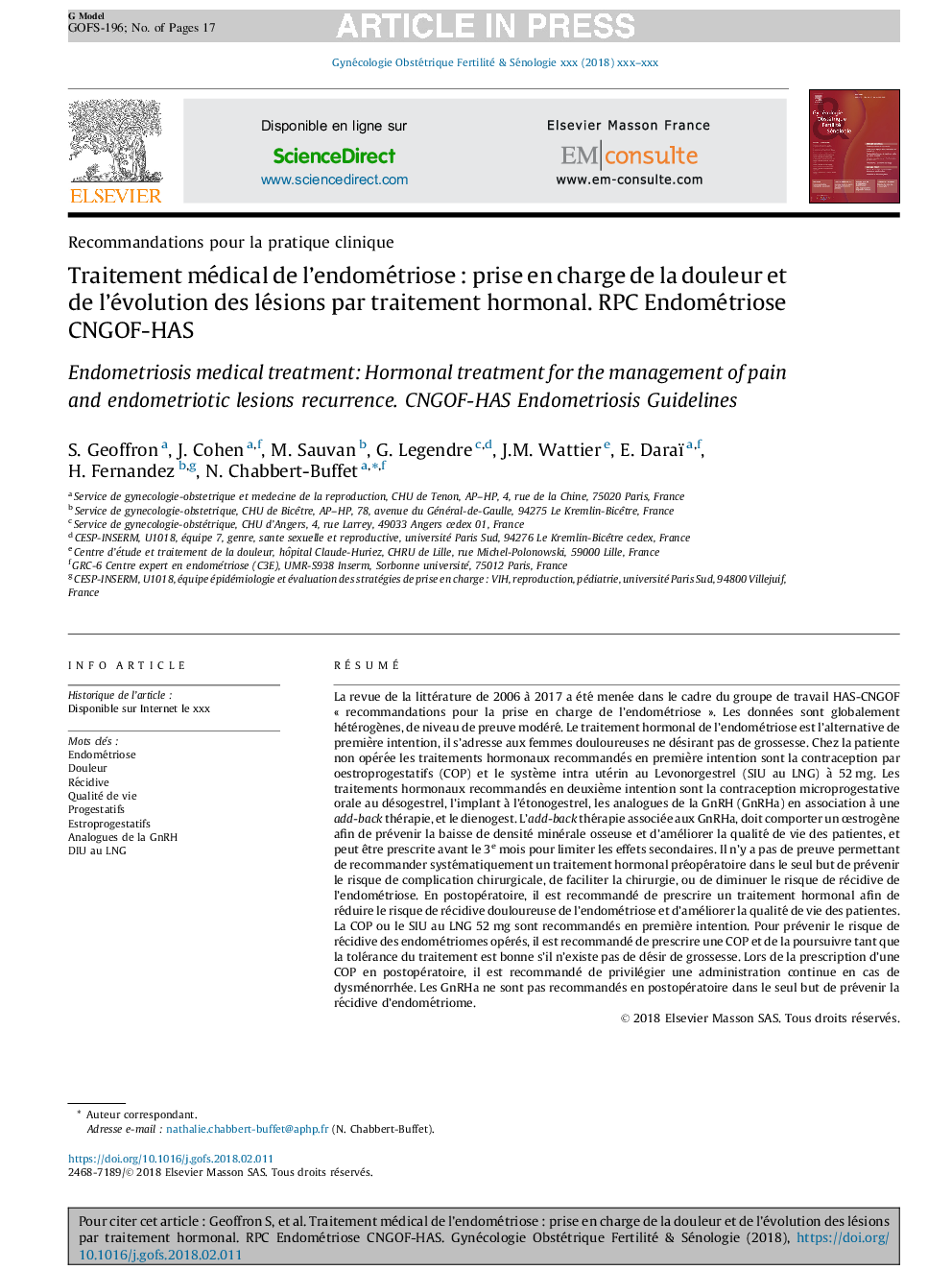| Article ID | Journal | Published Year | Pages | File Type |
|---|---|---|---|---|
| 8926254 | Gynécologie Obstétrique Fertilité & Sénologie | 2018 | 17 Pages |
Abstract
The available literature, from 2006 to 2017, on hormonal treatment has been analysed as a contribution to the HAS-CNGOF task force for the treatment of endometriosis. Available data are heterogeneous and the general level of evidence is moderate. Hormonal treatment is usually offered as the primary option to women suffering from endometriosis. It cannot be used in women willing to conceive. In women who have not been operated, the first line of hormonal treatment includes combined oral contraceptives (COC) and the levonorgestrel-releasing intra uterine system (52Â mg LNG-IUS). As a second line, desogestrel progestin only pills, etonogestrel implants, GnRH analogs (GnRHa) with add back therapy and dienogest can be offered. Add back therapy should include estrogens to prevent bone loss and improve quality of life, it can be introduced before the third month of treatment to prevent side effects. The literature does not support preoperative hormonal treatment for the sole purpose of reducing complications or recurrence, or facilitating surgical procedures. After surgical treatment, hormonal treatment is recommended to prevent pain recurrence and improve quality of life. COCs or LNG IUS are recommended as a first line. To prevent recurrence of endometriomas COC is advised and maintained as long as tolerance is good in the absence of pregnancy plans. In case of dysmenorrhea, postoperative COC should be used in a continuous scheme. GnRHa are not recommended in the sole purpose of reducing endometrioma recurrence risk.
Keywords
Related Topics
Health Sciences
Medicine and Dentistry
Obstetrics, Gynecology and Women's Health
Authors
S. Geoffron, J. Cohen, M. Sauvan, G. Legendre, J.M. Wattier, E. Daraï, H. Fernandez, N. Chabbert-Buffet,
